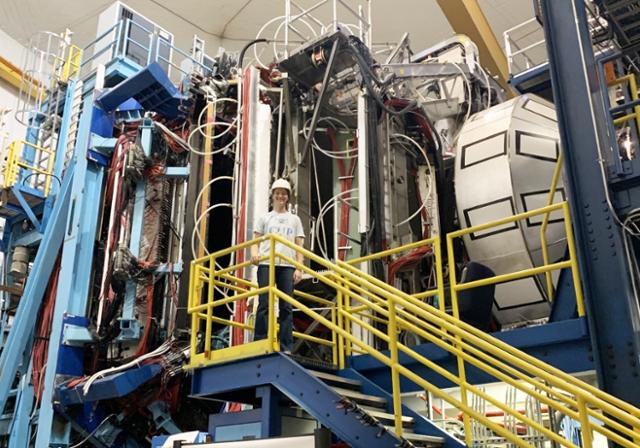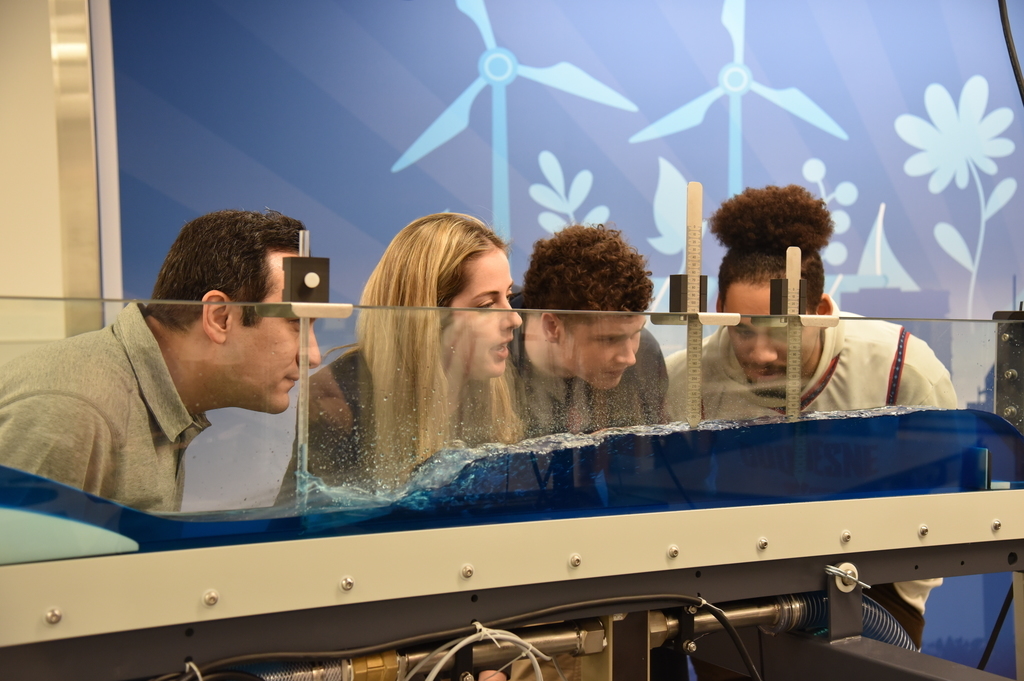Civil Engineering
Bachelor of Science in Civil Engineering
The Bachelor of Science in Civil Engineering (BSCE) is designed to prepare you for a successful career in the design, construction, and maintenance of essential infrastructure. Through a curriculum that emphasizes hands-on, project-based learning, you’ll develop the practical skills needed for professional practice. With access to advanced resources like a computer-aided design lab and a structures lab, you’ll gain the experience that will launch your career and empower you to shape the future of our built environment.
Environmental Engineering Concentration
The BSCE with an Environmental Engineering concentration equips you with the skills
to understand complex environmental issues and design effective systems to reduce
or mitigate pollution. By combining the principles of Civil and Chemical Engineering,
this field prepares you to address critical challenges where human activity intersects
with the environment. As an environmental engineer, you’ll design water treatment
systems, manage solid and hazardous waste, develop air pollution solutions, and create
sustainable waste-to-value projects. You’ll also have the opportunity to oversee environmental
regulations and innovate proactive approaches to prevent future issues.
Program Information
Duquesne's Bachelor of Science in Civil Engineering (BSCE) prepares you for careers in designing, constructing, and maintaining infrastructure, with an Environmental Engineering concentration that teaches solutions for pollution mitigation by integrating civil and chemical engineering principles.
Program Type
Major
Degree
Bachelor's
Duration
4-year
Required Credit Hours
130-133
As a student in the civil engineering program, you'll collaborate with faculty on
scientific research and engineering design, contributing to significant scientific
goals and often co-authoring publications in leading journals like the Chemical Engineering
Journal, the Journal of Engineering and the International Journal of Frontline Research
in Engineering and Technology (IJFRET). You can explore your interests through approximately 14 clubs and organizations, which
are open to science and engineering majors. These options include joining the Biomedical
Engineering Society, the Society of Women Engineers and the Multicultural STEM Group,
among others, to connect with like-minded peers and pursue your passions. Duquesne University is nestled in the heart of Pittsburgh, a city with 90 diverse
neighborhoods where everyone can be themselves. Repeatedly ranked among the most livable
cities, Pittsburgh offers a vibrant mix of opportunities just a few blocks from campus,
including Fortune 500 companies, nonprofit organizations, and startups for work —
and three major league sports teams for play! Contact me, your Enrollment Coordinator, to get started on your engineering path.Featured content

Get Hands-On Research Experience

Find Your Community

Study in a Dynamic and Thriving Location
It's Time For Bigger Goals!
I Can Help You Reach Your Bigger Goals!
133 required credits ENGR Technical Elective (Choose 1) Civil Engineering Electives (Choose 2) 130 required credits Fall Semester (16 credits) Spring Semester (17 credits) Fall Semester (18 credits) Spring Semester (17 credits) Fall Semester (16 credits) Spring Semester (16 credits) Fall Semester (15 credits) Spring Semester (15 credits)
Learning Outcomes
BS Civil Engineering Curriculum
Spring Semester (17 credits)
Spring Semester (17 credits)
Spring Semester (16 credits)
Spring Semester (15 credits)
Environmental Engineering Concentration Curriculum




